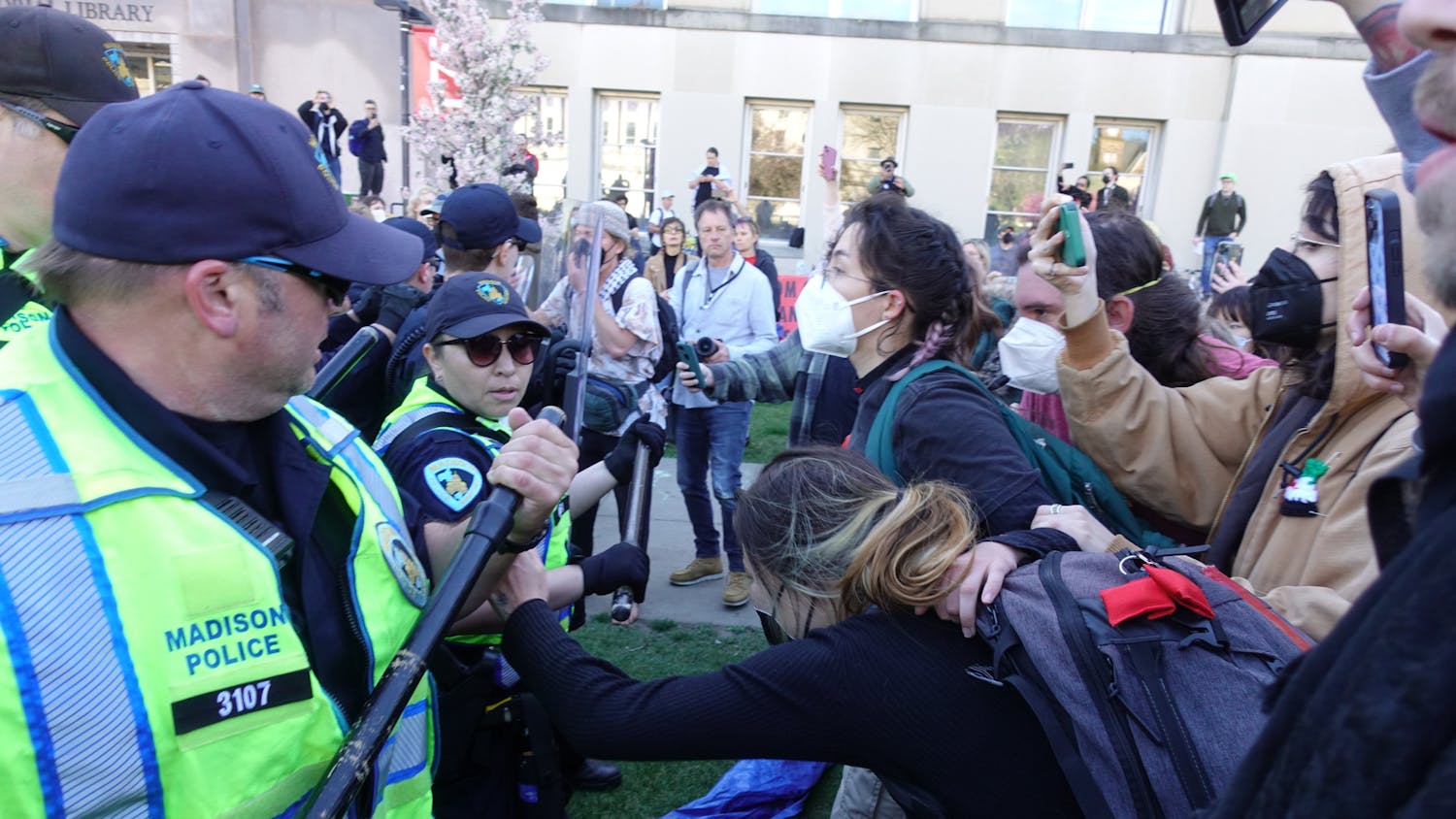State health officials announced Sunday that over 100,000 Wisconsinites have been vaccinated for COVID-19. According to data from the Department of Health Services, 2,465 additional individuals received their second dose on Sunday, bringing the statewide total of fully vaccinated individuals to 101,219.
Vaccinations are currently available to frontline health care personnel, residents in skilled nursing and long-term care facilities, police and fire personnel, correctional staff and all adults ages 65 and over in Wisconsin. As of Sunday, 19 percent of adults ages 65 and older in the state have received at least one dose, according to the DHS.
The DHS announced Tuesday that more groups should be eligible to receive the vaccine around March 1, depending on the federal government’s vaccine supply. According to the DHS website, the next eligible groups include education and child care workers, individuals in Medicaid long-term care programs, facility staff and residents in congregate living settings, non-frontline essential health care personnel and some public-facing essential workers.
According to the DHS, congregate living facilities include employer-based housing, housing for the elderly or people with disabilities, shelters, transitional housing and incarcerated individuals. The State Disaster Medical Advisory Committee does not include students in shared living situations in their priority group 1b recommendations.
Recent COVID-19 legislation proposals include prohibiting employers or DHS or local health officials from requiring people to get the vaccine. According to a Legislative Reference Bureau analysis, under current law, the DHS can order individuals to get a vaccination during a state of emergency related to public health, unless under certain medical circumstances or religious or conscience reasons.
Assembly Republicans also passed a bill on Thursday which would require DHS to deliver a vaccination plan to the legislature by Feb. 28. Additionally, the bill would immediately lower the age of current vaccine eligibility from 65 to 60 and make the vaccine accessible to the general public by March 15.
Republican leaders have repeatedly criticized the Evers’ administration’s vaccine rollout, citing reports that Wisconsin lagged behind its Midwestern counterparts.
“Getting this vaccination program right may be one of the most critical efforts we ever take on in our lifetimes, which is why it is unacceptable that Wisconsin has ranked among the worst states in the nation in vaccines administered per capita,” said Rep. Joe Sanfelippo, R-New Berlin. “We need to make sure to act with much greater flexibility and urgency so that we can get shots into arms as quickly as possible.”
In response, the DHS explained that Wisconsin’s vaccine doses are allocated by the federal government and the state receives a set number each week.
As Wisconsin continues its vaccination campaign, state lawmakers are still sparring over Gov. Tony Evers’ mask mandate. Republican legislators have raised questions about the legal standing of Evers’ most recent public health emergency and the Senate passed a joint resolution Tuesday to repeal the mask order.
The Assembly was scheduled to vote on the mask mandate repeal Thursday, but the effort was halted after the legislature realized the joint resolution would cut off funding for SNAP, a program providing food assistance to low-income residents.
Republican efforts to repeal the mask mandate have been opposed by both health organizations from around the state. As of Sunday, at least 53 organizations had registered against the joint resolution.
In a media briefing on Friday, Evers criticized Republicans’ recent actions.
“This issue is about saving lives,” Evers said. “It’s unbelievable to me that we can have the entire health world opposing [Republicans] striking down this order, and they ignore the science.”
The DHS recently saw a leadership change when Secretary-designee Andrea Palm left the Evers administration on Jan. 20 for a position as United States Deputy Secretary of Health and Human Services, where she will serve under President Joe Biden if confirmed by the U.S. Senate.
Palm was replaced by Karen Timberlake, who was DHS Secretary under former Gov. Jim Doyle. Timberlake is no stranger to fighting pandemics, as she oversaw the DHS response to the 2009 H1N1 outbreak.
“Our top priorities at the DHS will continue to be advocating to receive Wisconsin’s fair share of vaccines from the federal government, distributing vaccines out across the state and getting shots in arms as quickly as possible while we work together to prevent the spread of COVID-19,” Timberlake said.
While the COVID-19 pandemic is far from over in Wisconsin, Timberlake will inherit an improved situation compared to late fall. The DHS confirmed 1,007 new cases and 3 new deaths on Sunday, the ninth day in a row with under 2,000 new cases. The state’s cases, deaths and percent positive rate have all trended downward since the last peak in early January.
Tyler Katzenberger is the former managing editor at The Daily Cardinal. He also served as the state news editor, covering numerous protests, elections, healthcare, business and in-depth stories. He previously interned with The Capital Times, Milwaukee Journal Sentinel and is an incoming POLITICO California intern. Follow him on Twitter at @TylerKatzen.






